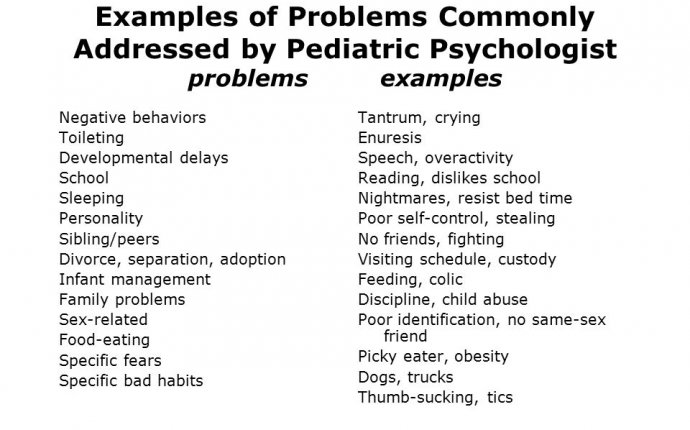
psychologist Problems
As the field of clinical psychology has evolved, so too have the expectations of today’s practitioner. Psychologists who provide clinical services are now trained in a wide range of techniques and theoretical approaches that equip them with the knowledge and skills necessary to advance the science of psychology, the professional practice of psychology, and people’s general health and well-being. Thanks to their knowledge and skill set, clinical psychologists enjoy careers in industries as varied as research, integrated health care, teaching, program development and evaluation, consultation, public policy and professional practice.
Long gone are the days when clinical psychologists only worked in limited settings such as private practices or state hospitals. Today, many work in teams with other health, public health or social service organizations.
Some clinical psychologists work exclusively on specific mental, emotional and behavioral issues. These range from short-term problems, such as difficulties resulting from relationship conflict or work stress, to more serious and often chronic conditions, such as post-traumatic stress disorder and addiction. Others focus on specific populations like youth; families; couples; racial and ethnic groups; lesbian, gay, bisexual and transgender individuals; and older people.
The application of their research and the science behind their work make clinical psychologists invaluable in mental health and health care settings alike and in hospitals, schools, courts, the government, the military — almost anywhere you can imagine.
1 Compas, Bruce & Gotlib, Ian. (2002). Introduction to Clinical Psychology. New York, NY: McGraw-Hill Higher Education.









